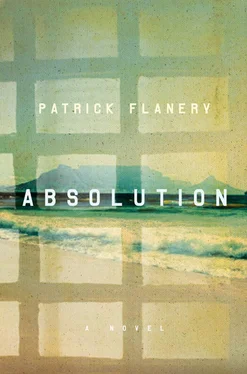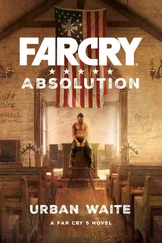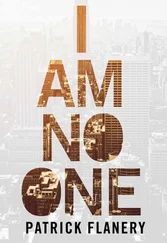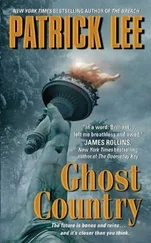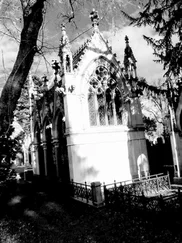‘They are not my intruders.’
‘ The intruders, then, if you prefer.’ Ms White managed to look down her nose at Clare, even though, seated as she was, Clare remained taller than the other woman. ‘You use a private security firm?’
‘It is private to my knowledge. Perhaps the state has some interest in it?’
‘I do not know. Perhaps you know something we do not,’ the woman said, and sniffed again.
‘No,’ said Clare. ‘Do you need a tissue?’
‘It occurs to me, Mrs Wald, that surely your private security firm employs men with guns. Would they not respond with guns if you summoned them?’
‘I have not yet needed to summon them. We might try now, if you like,’ Clare said, daring a curl of the lip. A silence rolled around between them on the floor and Clare wondered how responsive her security men would be. ‘I hope you get them, the intruders.’
‘Show them to me, madam, and I will. Just show them to me,’ said Ms White, as if Clare herself were one of the intruders.
‘Your officers never even asked me for a statement.’
‘But that I think is a lie.’ Ms White riffled through the papers in her binder and retrieved a single page. ‘ Four men, aged twenty-five to forty. Average height, muscular build. Race uncertain .’
‘I did not say anything of the kind. I have no idea what their age might have been. I could not even say with certainty that they were definitely men.’ Clare wondered if, in the aftermath of the invasion, she had given a statement she could not now remember.
‘You signed the document,’ said Ms White, holding it up for inspection.
Clare was certain it was not her signature — too jagged, too unkempt. ‘I did not,’ she said, but then had a moment of doubt. If the panic had been as acute as she remembered, then it was entirely possible that a shaking hand would have distorted her signature. The name on the document was, she could see, the issue of a hand wandering free of the brain’s control.
‘Are you accusing my officers of something?’
‘No, I cannot do that. I am — uncertain. All that I am doing is accusing someone of making a mistake. I do not remember giving a description. I do not remember putting my signature to that document. But no, thinking about it again, I am certain that I never gave an official statement. I was never taken to a police station — that is beyond doubt. I have never been called to testify or witness. That scrawl, the signature, it could be anything. I do not think it is mine. I say that emphatically.’ In fact, Clare doubted herself even more, and, after all, the woman was only trying to do her job.
Ms White clicked her tongue, shook her head, looked concerned, sniffed again. ‘It seems there is some very grave misunderstanding, then. Because here, quite clearly, someone purporting to be you — I can read your name — has levelled the blame at four men, aged twenty-five to forty, of average height and muscular build, and indeterminate race. Indeterminate race. Is that a euphemism, madam?’
‘As I did not make the statement, how can I know whether it was meant as a euphemism or a statement of fact? I think you should leave, Ms White.’
‘You should be careful, madam, because someone I think is pretending to be you. Or else you are forgetting who you are, and where you have been. Why do you think that would be? Why should someone give us evidence on your behalf that was not you, and pretend to be you? It seems a very strange situation. I think you are forgetting something. I think you are not feeling well. There are places for the sick to get well, if you are sick. It could be arranged.’
‘I am not sick. I am in perfect health. Consult my doctors.’ Clare saw what was being threatened: the forcible hospitalization, sedation, electroconvulsive therapy, interminable confinement — an assault on the mind. She knew she would have to tread carefully, but was struggling to find the reserve to control herself.
‘We will have to get to the bottom of it, madam. But I assure you, we are very good at what we do, and we will get to the bottom of it, one way or another, no matter how long it takes.’ Ms White smiled almost benevolently and stood, signalling the end of the interview. She did not say goodbye or offer her hand, snapping the binder shut before dropping it into her briefcase. ‘I can find my own way out.’
‘I will show you,’ said Clare. ‘Allow me that courtesy at least.’
Is it unfair for me to think your notebooks, your final letter, a load I must bear? It pains me to read them, to compare them with the official accounts, the TRC transcripts, the news clippings, the competing histories and revisions of the past that I have accumulated in an ever-expanding file of materials, compiled so long after the events they seek to describe. I begin to accept that distance can only breed distortion. I read a line in your handwriting, compare it with the other things I know, the memories of you, the birthday and Mother’s Day cards you gave me over the years even when I know it pained you to offer me any sign of love. I cannot go on. Reading a single page is alpine ascent. A day’s worth of writing — one of your days, your account of a single day — is ocean crossing. I held Sam’s hand and he looked so trusting , I read, and put down the notebook before I make the ink of your words run lividly across the page. Why do I not have more in your hand, Laura? Your wild child’s handwriting turned tight and regimented in adolescence, just like your politics, for a while so unlike ours, so foreign to anything your father or I would have countenanced as correct or proper or simply good. The flag you insisted on flying from your bedroom window. The salutes. The singing of the anthem. Your peculiar militarism. It was torture for us — torture and embarrassment. And the tiny marching rows of letters, so finely written your teachers complained that your essays were almost illegible and required the use of magnifying glasses. And then, along with your politics, the sudden shift in your hand halfway through your first year at university, the strange hybrid of cursive and print, your own invention, beautiful but unruly, adhering only to the barest outline of rule. Radical and unruly where once you had been so conservative. You were old enough to know what you thought, to realize when you’d been wrong in the past, to know your ignorance and realize the terror in that unknowing.
Even now, when so much has changed and nothing has changed, there are difficulties. There is something in your case, and others like yours, which pricks consciences and embarrasses your former colleagues. No one will tell me what or why. I admit I have made only limited enquiries, asked discreet questions of a few people at official events, where they cannot speak without fear of being overheard, where I must look like a pathetic and desperate old woman hungry for justification and reassurance and some explanation for why your name is not on the roll of heroes. I can only guess. Perhaps it is the cold-bloodedness of what you did, the extraordinary determination in the way you carried out your mission. You were nothing if not a zealot. You had innocent victims, if any one of us can be called innocent or victim .
Who do we believe? There are lacunae in the archive I have assembled, the filing cabinet that contains what remains of you, gaps yawning between your account to me in the letter delivered on your behalf, your account to yourself in the ten notebooks you bequeathed to me, and the accounts of the former government, the news reports, the testimony of your former colleagues, and that of your own victims. There are periods for which no one can account, missing ligatures of motivation and event and development between more or less established fact, without which the bones of the story would make no sense, fall to the ground, have no possibility of mobility or unity of structure, no life. I need to will those ligaments into being, put flesh upon the facts, decide whether it is a serpentine monster or a ten-armed goddess.
Читать дальше
